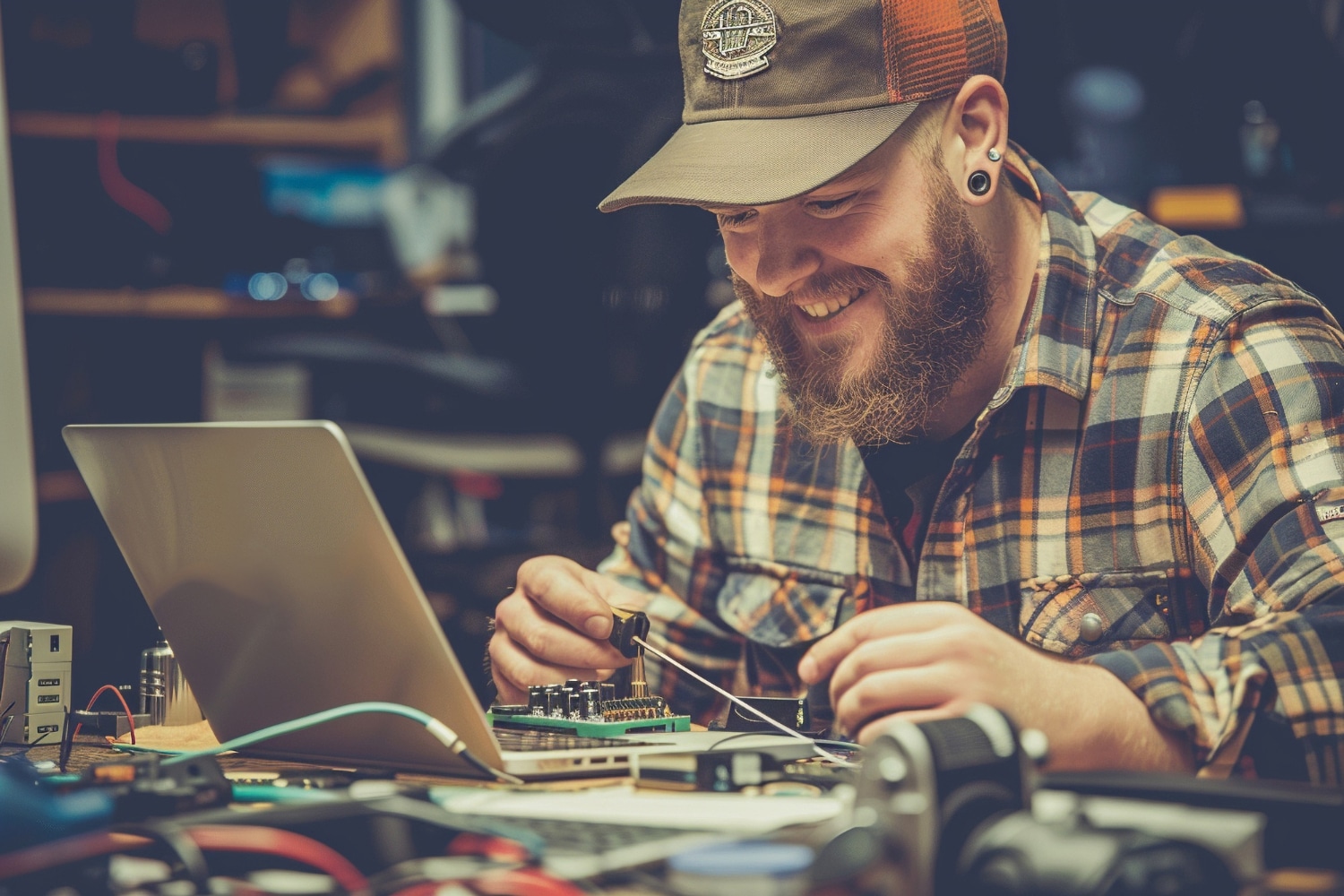Computers are integral to our daily lives, both at home and at work. Whether for personal tasks, entertainment, or professional projects, our PCs handle a great deal of responsibility.
Unfortunately, it’s easy to overlook the importance of regular maintenance until something goes wrong. Failing to address minor issues early on can lead to a cascade of hidden costs that go beyond just inconvenience.
“PC Repairs Near Me” is often the first phrase people browse when their computers slow down or stop functioning correctly. However, waiting until a problem arises can be much more costly than taking a proactive approach. Ignoring routine PC maintenance and repairs comes with various risks, each affecting your productivity, finances, and even security.
Financial Strain from Neglected Repairs

Skipping regular PC maintenance leads to much higher costs down the line. When you avoid small fixes, the damage typically escalates. For instance, ignoring a minor overheating issue might result in complete hardware failure. Replacing a single component, such as a hard drive, is far cheaper than dealing with a fried motherboard or an entire system crash.
Neglect can also force you to replace your PC much sooner than expected. Its average lifespan is around 3-5 years, but poor maintenance can shorten that drastically. Regular tune-ups and updates can extend this timeline, saving you from buying a new computer prematurely.
Downtime and Lost Productivity
Time is money, and a malfunctioning computer can severely impact your productivity. Whether you’re working from home or in an office setting, any downtime due to computer issues can translate into missed deadlines, lost opportunities, and frustrated clients.
A simple blue screen or software crash could mean hours of troubleshooting, which could have been prevented with proper maintenance. If your livelihood depends on your computer, this downtime could be costly, leading to financial loss beyond just repair costs.
Shorter Hardware Lifespan
A PC’s internal components, like the motherboard, RAM, and hard drives, rely on each other to function optimally. When one part of your system starts malfunctioning, it can place undue stress on the rest of the components. For example, a failing cooling system can cause your CPU to overheat, shortening its lifespan.
Many users don’t realise how small issues—like dust buildup or outdated software—can affect the overall health of their computer. Dust buildup can cause internal components to overheat, while outdated software may result in erratic system behaviour. Addressing these seemingly minor issues promptly can prevent them from snowballing into hardware failures.
Decreased Resale Value
If you plan on upgrading or selling your computer in the future, regular maintenance will help retain its value. A well-maintained PC can be sold at a higher price compared to one that has been neglected. Many buyers are willing to pay a premium for a computer that runs smoothly and shows no signs of wear and tear.
Additionally, when selling or passing on your old device, a record of regular maintenance shows that the system is reliable and unlikely to encounter issues soon. Neglecting repairs could diminish your PC’s resale value significantly, making it harder to get a return on your investment.
Tips to Avoid These Hidden Costs
- Schedule regular checkups: Don’t wait for your PC to crash before seeking help. Regular diagnostics can help identify and address problems early.
- Upgrade and update regularly: Outdated software and hardware are more prone to failure. Keeping your system up-to-date can prevent a range of issues, from security vulnerabilities to hardware wear.
- Backup your data: Regular backups protect you from unexpected data loss due to hardware failure or malicious software.
Neglecting regular PC repairs may seem harmless, but the hidden costs can add up quickly. Rather than waiting for a major problem to occur, it’s smarter—and often cheaper—to be proactive. Likewise, browse “PC Repairs Near Me” whenever you must and get expert help. So, the next time you think of skipping that diagnostic or update, remember the potential hidden costs you might face later.
FAQs About PC Repairs and Maintenance
Why is regular PC maintenance important?
Regular maintenance ensures your computer runs efficiently, prevents hardware failures, and extends its lifespan. It also reduces the risk of costly repairs by addressing small issues before they escalate.
What are the common signs that my PC needs repairs?
Some common signs include:
- Slow performance
- Frequent crashes or blue screens
- Overheating or loud fan noises
- Unresponsive programs
- Unusual pop-ups or error messages
If you notice these, it’s time to consult a professional.
How often should I schedule PC maintenance?
For optimal performance, schedule maintenance every 6–12 months. This includes cleaning internal components, updating software, and running diagnostics to detect potential issues.
Can I perform PC maintenance myself?
Yes, you can handle basic tasks like:
- Cleaning dust from vents and fans
- Updating software and drivers
- Running antivirus scans
However, more complex issues like hardware diagnostics or repairs are best left to professionals.
What happens if I ignore minor PC issues?
Neglecting small problems can lead to:
- Hardware failures
- Increased repair costs
- Reduced system performance
- Shortened lifespan of your PC
Addressing issues early saves you time and money.
How can I find reliable PC repair services near me?
Search online for “PC Repairs Near Me” and read reviews to find reputable providers. Look for technicians with certifications, clear pricing, and a track record of satisfied customers.
How can I prevent my PC from overheating?
- Keep your PC in a cool, ventilated area.
- Regularly clean dust from fans and vents.
- Avoid running too many programs at once.
- Check the cooling system during routine maintenance.
8. Are software updates really necessary?
Yes, software updates improve performance, fix bugs, and patch security vulnerabilities. Regular updates help protect your system from malware and ensure compatibility with the latest applications.
What should I do if my PC crashes frequently?
Frequent crashes could indicate hardware or software issues. Run diagnostics to identify the cause, and consult a professional for repair if necessary.
How can I increase my PC’s resale value?
Maintain your PC with regular tune-ups, clean its components, and ensure all software is up-to-date. Keeping records of maintenance can also reassure buyers of the system’s reliability.
If you have more questions about maintaining or repairing your PC, consult a trusted repair technician for personalized advice!




